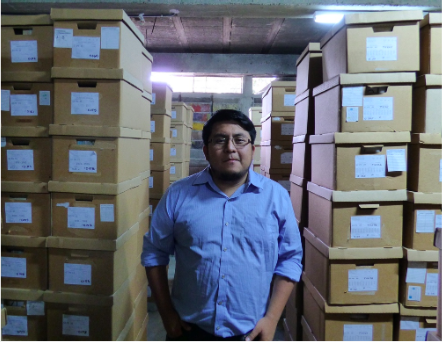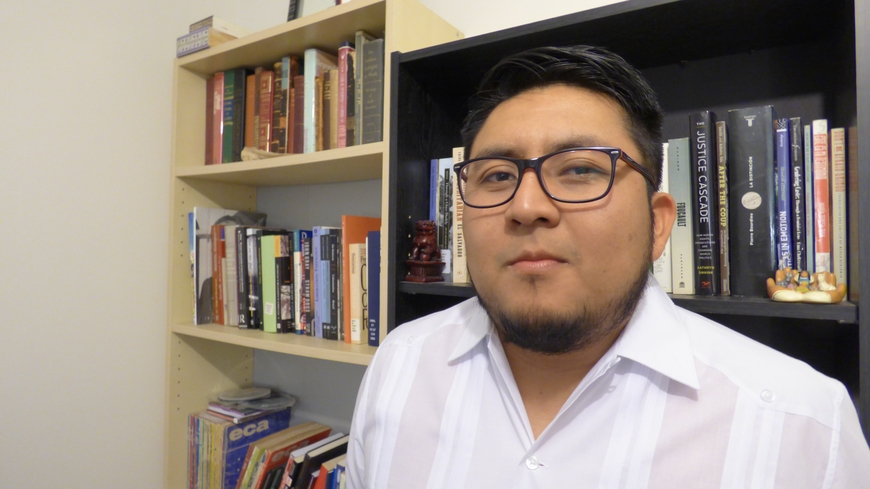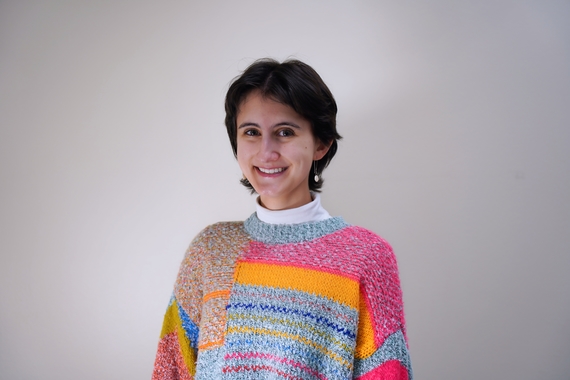IDF Spotlight: PhD Student Studies Violence Against Mayans in Guatemala
Heider Tun is a 2019-20 Interdisciplinary Doctoral (IDF) Fellow, affiliated with the Human Rights Program and the Institute for Global Studies. He is a Ph.D. student in History, pursuing graduate minors in both Human Rights and Development Studies and Social Change. We recently caught up with Heider to see how his IDF year is progressing.
I’m Mayan Yucatec and I have been interested in studying how local communities have responded to violence. The Guatemalan Internal Armed Conflict (1960-1996) is infamously known because from 1981 to 1982 the Guatemalan army committed genocide against Mayan Ixiles. I decided to work on this case to understand how local communities have made sense of the violence committed against them and how they have responded. I’m studying the Guatemalan case beyond the paradigms of violence and genocide in which indigenous groups are seen only as victims of violence. Historically, Mayan communities have been able to survive different attempts to destroy they culture and their presence in Central America. My research studies the Mayan activism and efforts to overcome social inequality since the 1940s. These previous efforts for changing the social order in society became the bases for the opening of the Human Rights Office of the Guatemalan Archdioceses that since the 1990s has been working to preserve the historical memory of the rural communities affected by the armed conflict.
Working on contemporary issues in indigenous communities in Central America requires an interdisciplinary approach which in my case connects the fields of History and Human Rights. Western notions of time and division of thought don’t fit with the understanding of indigenous communities; for many Mayans communities the idea of future is embedded in the past; in the Mayan world religion, politics, history and human rights are connected. Applying human rights initiatives that help indigenous communities overcome traumas or prevent future violence, requires an interdisciplinary approach that fits with their view of the social order. The future of human rights initiatives in Guatemala depends on our understanding of historical relations between indigenous and non-indigenous groups and how indigenous communities have built their own understanding of human rights.
For academia, working in an interdisciplinary project is challenging because I have to deal with the requirements and the expectations of both fields; on the one hand the historical periodization and chronology I’m proposing needs to fit with the interest of other historians that might not be interested in pursuing changes in contemporary society. On the other, my approach to human rights is connected to the study of archival evidence. Also, human rights theories and policies are focused on the performance of the nation-state however, in Guatemala the presence of the state in rural areas has been weak since the creation of the state. My current work as an Interdisciplinary Doctoral Fellow supported by the Human Rights Program deals with this issue of how to put together historical inquiry with human rights issues. My archival work recovers the non-violent responses of Mayan communities to violence in which these communities have reflected on their identity, rights, and ways to promote social change.
My work provides a new understanding of the current debates about violence in Central America. Human rights played an important role in the negotiation of peace accords of Guatemalan in 1996. At the time, the agreements between the Guatemalan military and the URGN (Guatemalan National Revolutionary Unity) recognized the importance of the protection of human rights for the reunification of the state and the protection of indigenous rights. Because of Guatemala’s current situation of poverty, violence and persecution of indigenous leaders, scholars are discussing whether or not the 1996 peace accords and the armed conflict itself failed in creating a positive social change for marginalized communities. Some scholars and activists suggest that the peace accords should be re-done. While working as Interdisciplinary Fellow I’m participating in these debates and I argue that as a society we have to look at how indigenous communities have been participating in the promotion of human rights and policies that have affected their communities. Historically, Mayan communities have not had participation in the governance of their own communities even though they have been active in creating efforts to overturn their marginalized situation.




